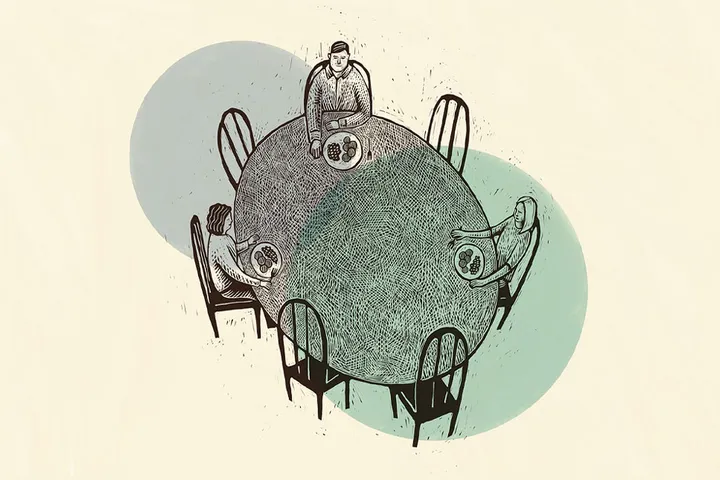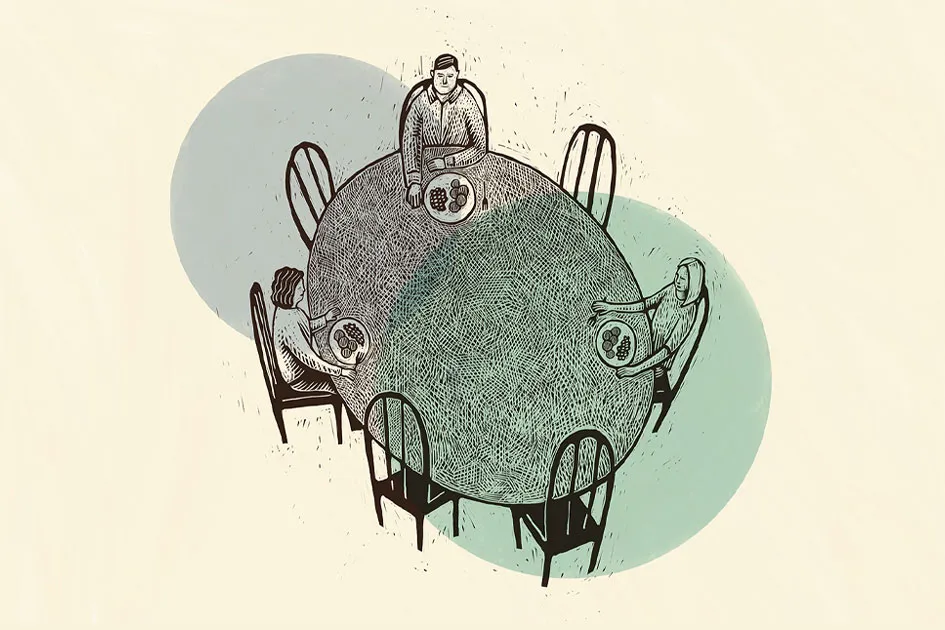Thanksgiving is one of the happiest holidays on the calendar, but it can also be an occasion for anxiety. Along with the joy and laughter of family gatherings come the stresses of travel and problems with relatives. Even the centerpiece of our celebration—the Thanksgiving table—can be a source of tension for those who have to prepare the food that fills it.
God doesn’t want stress to be our constant companion. We need to learn how to overcome worry in the moment and prevent it from becoming a way of life.
Furthermore, Christmas ramps up earlier each year and often overshadows Thanksgiving. Instead of being a special day to express our gratitude to God for all His care and blessings, it has become the kickoff of the demanding holiday season and the overloaded schedules, financial concerns, and general frustrations that come with Advent.
So this is the perfect time to consider how we can maintain a lifestyle free of anxiety during the coming weeks. Now, I’m not saying we’ll never feel pressure, but God doesn’t want stress to be our constant companion. We need to learn how to overcome worry in the moment and prevent it from becoming a way of life.
The most capable teacher for this lesson is the apostle Paul. While confined in a Roman prison, he wrote these words: “I have learned to be content in whatever circumstances I am” (Phil. 4:11). In fact, he was more than just content; he was rejoicing in the Lord greatly (Phil. 4:10). What was his secret? How could he be at peace in such a difficult situation? The answer is found in the preceding verses.
Pray Rightly. Paul begins by saying, “Be anxious for nothing, but in everything by prayer and supplication with thanksgiving let your requests be made known to God” (Phil. 4:6). The Lord’s remedy for stress is prayer—bringing every concern to Him, no matter how big or small. In one short sentence, Paul gives us a pattern for peace with three simple words: prayer, supplication, and thanksgiving.
The Lord’s remedy for stress is prayer—bringing every concern to Him, no matter how big or small.
The word prayer is a general expression for talking to the Father. However, it doesn’t mean merely informing Him of our needs. It’s a relational term that includes adoration, devotion, and worship. God wants to answer our petitions, but His greater desire is to build an intimate relationship with each of us. So instead of immediately listing our requests, we should spend time praising God, acknowledging our need of Him, rejoicing in His unconditional love, and loving Him in return.
The next word Paul uses is supplication. This conveys the idea that we should not only tell God about our circumstances but also pour out our hearts before Him. Sharing our feelings with the Lord is essential if we’re to develop a loving, intimate relationship that reaches beyond head knowledge to encompass our hearts. He’s a tender Father who sympathizes with our pain, confusion, fear, and frustration. He wants to give us more than a solution to our problem: His desire is to provide comfort and assurance in the midst of our troubles.
Finally, Paul advises us to pray with thanksgiving. Gratitude has a way of redirecting our minds. Instead of dwelling on our difficulties and wondering when God is going to answer our prayers, we’ll be reminded of His past faithfulness and care. Then we will be encouraged to trust Him for our current needs. As an act of faith, in fact, we can begin thanking Him even before we get answers.
God’s peace will always bind us back together.
Think Rightly. As we have learned, prayer should be our immediate response to anxiety, but maintaining a peaceful spirit also requires right thinking. That’s why Paul says our minds should dwell on whatever is true, honorable, right, pure, lovely, good, excellent, and praiseworthy (Phil. 4:8). Let me ask you a few challenging questions. What occupies your mind most of the time? Can you honestly say your thoughts match those on Paul’s list? How can you begin thinking more about what’s true, right, and good?
Since it is God who personifies all these qualities, one way to reshape our thinking is to see everyday activities through the lens of our relationship with Christ. For instance, when you look at your daily schedule, consider what He wants you to accomplish in light of His will for your life. If you foresee a difficult situation, ask the Lord to show you how to respond. If worry creeps in or your temper flares, pray immediately, asking God to help you behave in a way that honors Him.
Having a God-centered perspective is the key to maintaining a calm spirit both in the midst of daily stress and in times of crisis. When we keep our focus on Him, the promise of Isaiah 26:3 becomes ours: “You will keep him in perfect peace, whose mind is stayed on You, because he trusts in You” (NKJV).
Live Rightly. Paul closes his instructions for maintaining inner peace by telling believers the way to put it into practice (Phil. 4:9). How do we do it? Simple. We live in obedience to God. Now, this doesn’t mean we are going to be perfect. But when we stumble, we should quickly turn back to the Lord in confession and repentance and realign our lives according to His will. Then, Paul says, “the God of peace will be with you” (v. 9).
Gratitude has a way of redirecting our minds. Instead of dwelling on our difficulties, we’ll be reminded of His past faithfulness and care.
There are certain advantages to having lived as many years as I have. For example, I not only know this to be biblical truth; I’ve also experienced it. Once, after a very disturbing phone conversation, I remember saying to God, “You have been in charge of my life all these years, and I know that even now You are in control of this frightening circumstance.” I should have been churning with anxiety, but the Lord clothed me with His awesome, incomprehensible peace because I was submitted to Him. Even though the situation was still tumultuous, my heart was calm in the midst of the storm.
Choose Peace. I know it can sometimes seem as if we are victims of our highly stressful world, but in reality, every Christian can choose to live in peace rather than under a burden of anxiety. If we let apprehension rule our hearts, it will interfere with sleep, disrupt concentration, hinder productivity, steal joy, and even cause health problems. However, when Christ, the Prince of Peace, has full authority over our lives, He guards our hearts and minds by building a wall of protection against worry (Phil. 4:7).
Stress may pull us apart mentally, emotionally, physically, and spiritually, but God’s peace will always bind us back together so we can be whole again. And while we cannot control many of the stressful situations in our lives, we can decide which master we will serve.
Adapted from the sermon “When Anxiety Strikes” by Charles F. Stanley





